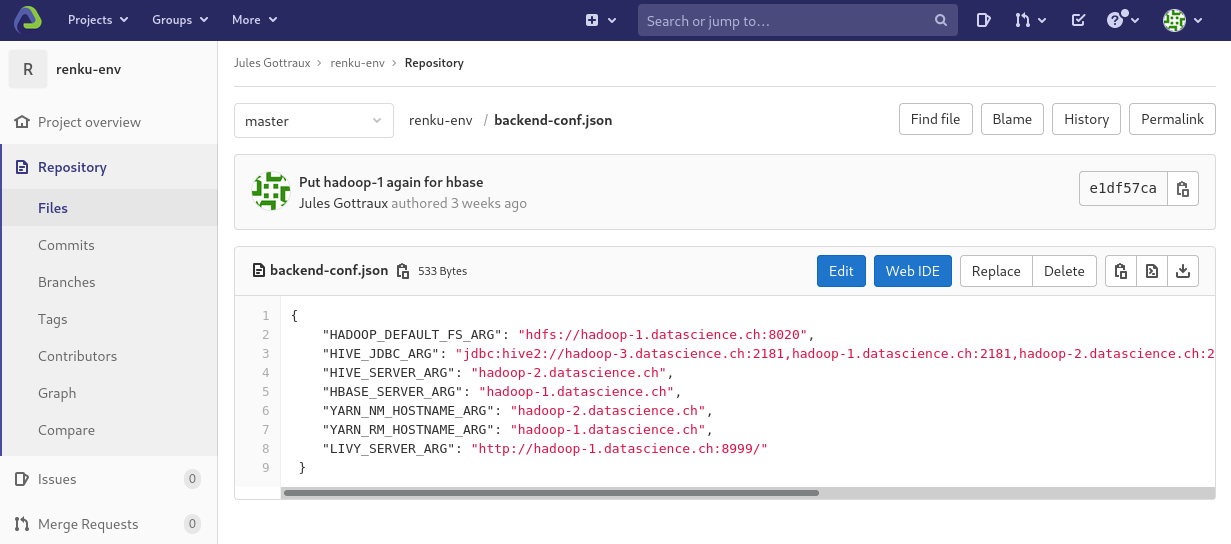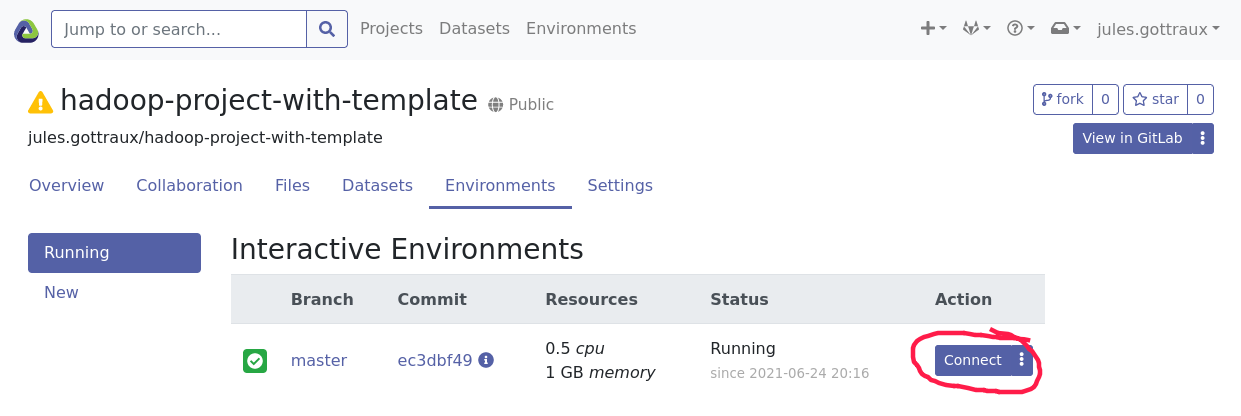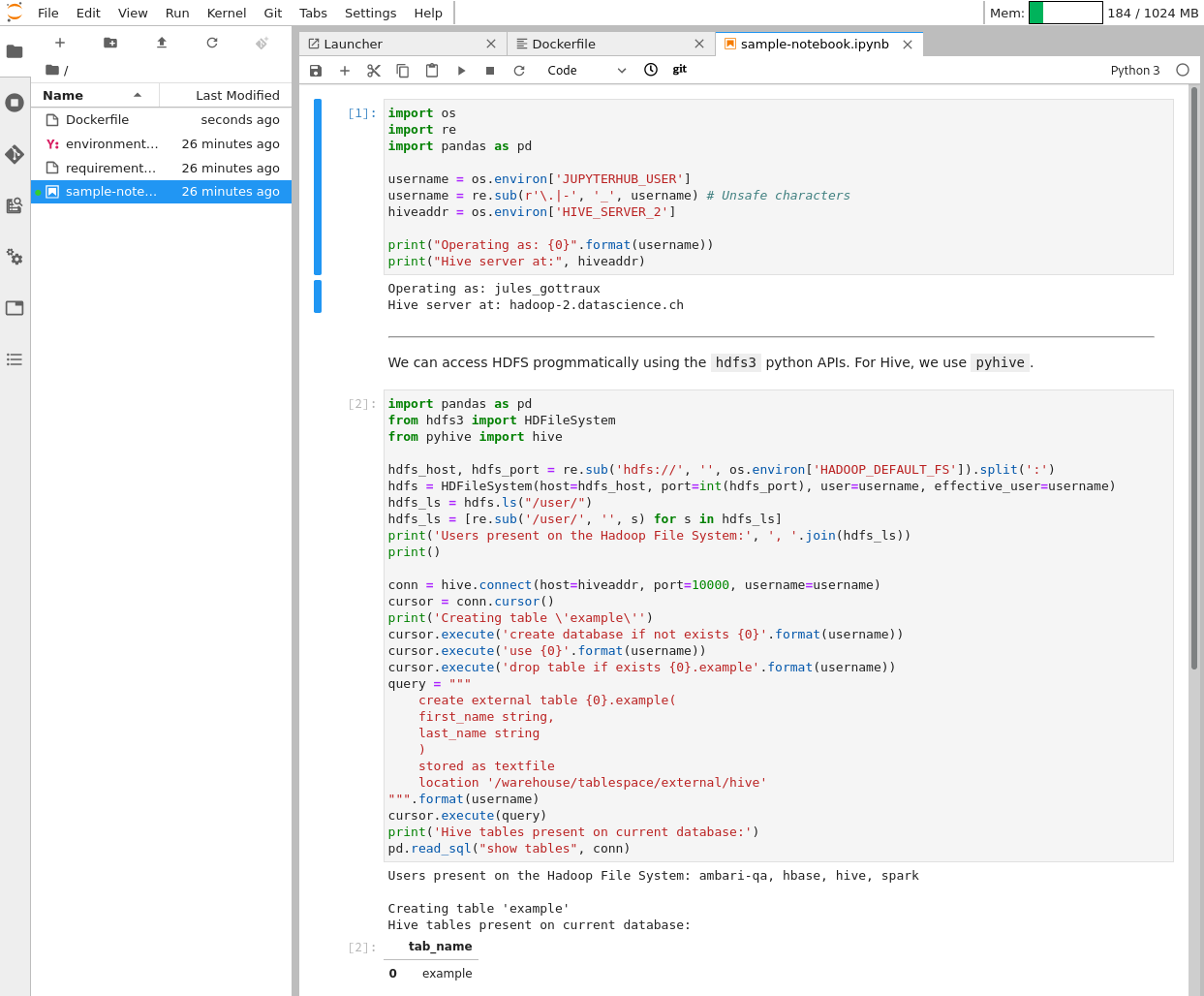In this project, we explore how to deploy and configure Data Science projects
with Hadoop in . We incorporate the
configuration between the two components in our design of template for Renku.
This template permits to reduce as much as possible the configuration needed
to use a Hadoop cluster. Just from the file that defines the backend (5 to 10
addresses) it can automatize the rest of the procedure while keeping the
possibility of configuring further the cluster's components. We also began
working on an important configuration element of a Hadoop cluster, namely to
provide authentication of the users on the cluster and the services available
on it.
- deployments: the documentation relative to the Renku and Hadoop deployments
- hadoop-template: our Renku template for Hadoop
- authentication: documentation relative to the setup of authentication on the Hadoop cluster
Along with this project you can find:
- A repository containing an example Hadoop project in Renku that doesn't use our template (current state of Renku): https://github.com/jjjules/hadoop-project-without-template
- A repository containing an example Hadoop project in Renku using our template: https://github.com/jjjules/hadoop-project-with-template
The technology provided by with its Hadoop
framework is the foundation of many leading services when it comes to Big Data
processing. With this project, we work on improving the accessibility of this
framework by providing documentation for all key components and a proposal of
design for integrating an automatic and dynamic configuration of Hadoop in Renku,
an open-source platform for reproducible and collaborative Data Science. Developed
by the Swiss Data Science Center (
), it enables
versioning of the code, the data and the environment which together provides full
reproducibility of Data Science projects. In the long term by offering a service
similar to what we’re designing, Renku would be one of the rare providers of an
easy-to-use Hadoop environment and it would greatly improve the accessibility to
it. The Renku plateform is also very useful in academic context. Our work of Hadoop
integration in Renku can help the teaching of this framework by providing an easy to
use and easy to manage Hadoop template in Renku.
Apache Hadoop is a framework for distributed processing. It is composed of the Hadoop File System (HDFS), YARN and a MapReduce component. HDFS is the distributed file system made for Hadoop. YARN is the job scheduler and cluster resource management, it orchestrates the computation across the nodes and manages the resources needed for the computation. MapReduce is the programming model used by Hadoop, it has been designed for parallel and distributed processing on clusters.
Hadoop serves as the basis for a lot of services for Big Data based on distributed architecture:
Spark, Hive, HBase, Kafka, etc. If you are unfamiliar with Hadoop and want to know more,
Craig Stedman has made .
It is a very important tool, it is considered as the principal technology for Big Data processing
for more than 10 years (), especially in combination $
with Spark which is widely used.
Renku is a platform for Data Scientists and Analysts, it helps them create reproducible environments for their project. As Git is for the code, Renku enables version control for the code, the data and the computer environment which makes it the perfect tool for collaborative and reproducible Data Science projects. A Renku project is similar to any other project, it just needs some additional information for the creation of the environment, mainly files needed by Docker. Renku is always linked to a Gitlab instance where Renku stores its projects.
Renku is very intuitive to use. From the web UI of Renku a user can choose a project and launch an interactive environment with a command-line interface and the ability to launch jupyter notebooks to code directly in the browser.
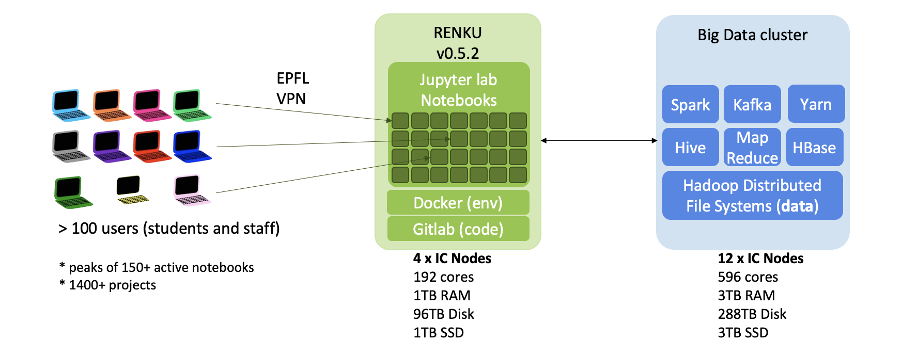 General structure of Renku using an external computing cluster
General structure of Renku using an external computing cluster
There are templates available in Renku to set up a new project rapidly. A Renku template sets up a simple environment for the needed task. For example, the template for python will install the packages needed by python along with additional nice-to-have packages, add the extension manager to jupyter and improve the command-line prompt with powershell.
For a project using Hadoop, the problem is that there is no integrated support yet. Meaning that to work on a project using Hadoop in Renku, all the configuration has to be done manually by the user. This includes installing the softwares for all services, configuring them and connecting them to their back-end (on the Hadoop cluster). This is problematic for a number of reasons. First, this is messy as all the configuration has to be done directly in the Dockerfile of the project. Hence, there is no separation between the project's code and its setup. This means that not only all people working on the project have to use the same back-end but also that a person working with multiple Hadoop projects has to duplicate the configuration across all of them. This also comes with a severe security flaw, by sharing the project the user shares also the resources he or she used in the project. Even if the cluster is secure, revealing the addresses of the cluster publicly is never a good idea as it exposes the cluster to attacks (e.g. DDoS). Secondly, installing and setting up the local machine for Hadoop with the back-end is not a trivial task. Most of the work will be common to all projects and thus easily automated. But done by hand this process takes time and involves a lot of transversal knowledge. In fact, chances are that without explicit support for Hadoop in Renku, hardly anybody will take the effort to use Renku with Hadoop. And finally, installing all the softwares in the Dockerfile will make the creation of the environment significantly slower than if it was already installed in the Docker image.
To illustrate this current state in Renku, we've added .
We show here our template in action. It comes in the form of a Docker image available here. The only two components required for a working Hadoop project are to use the template and to have the cluster set up in Gitlab as shown below (check the user guide of the template for more information):
The Dockerfile of the project simply use our Docker image:
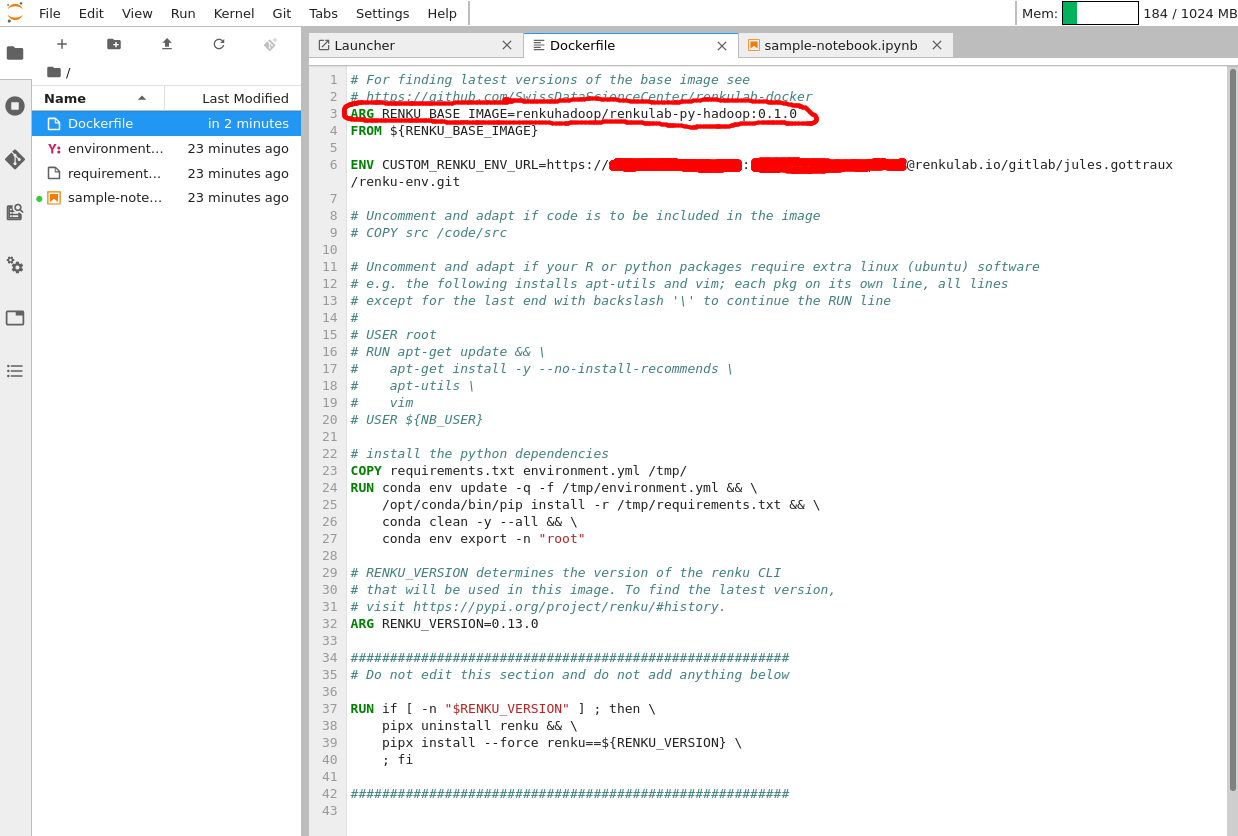
Note: at line 6 of the Dockerfile we just give a custom URL for the renku-env so that we can store the backend in a private repository, again check the user guide for more information.
Then we can create an environment and start coding:
